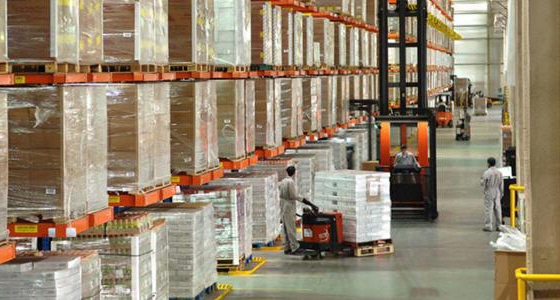Growing levels of international trade, both inbound and outbound, and a rising demand for trans-shipment services will drive expansion in Abu Dhabi’s logistics sector, with much of this activity taking place around its docks.
Abu Dhabi’s non-oil exports climbed 11.5% year-on-year in the second quarter of 2014, while imports – accounting for almost 80% of all trade – rose 7.5%, according to official data. The total value of non-oil merchandise trade was $9.9bn for the quarter, representing a 6.3% increase over the same period last year.
The growth is a result of its efforts to diversify from oil production and promote industrial and commercial development, objectives which are underpinned by a strong transport sector, according to Alp Eke, senior economist at National Bank of Abu Dhabi. Developing transport capacity and industrial zones close to shipping centers is positioning Abu Dhabi as a logistics hub, Eke told local media.
Boosting port-ability
Plans are afoot to expand one of the major spokes in this hub, the Khalifa Port Container Terminal. Port operator Abu Dhabi Terminals announced in mid-September that it would spend $109m over the next three years to improve services and expand capacity. The investments are part of a larger program to lift the port’s handling capacity from the present 2.5m twenty-foot equivalent units (TEUs) and 12m tons of general cargo to 15m TEUs and 35m tons of freight.
The investments in Khalifa Port and other maritime facilities are needed to meet domestic demand, as well as the development of trans-shipment facilities, or the transfer of a shipment from one vessel to another, driven by the increased use of mega containerships rather than direct transfer of cargo.
An estimated 20% of Khalifa Port’s handling capacity will be dedicated to trans-shipment operations by 2016, mainly to other destinations in the Gulf, but also to India and the broader region. This compares with trans-shipment accounting for just 5% of activity in 2013.
With enhanced handling capacity, Abu Dhabi is looking to lure shipping firms and their regional operations to the emirate, which will be supported by an expansion of its own export trade, offering carriers outbound cargos to fill their hulls, rather than focusing on inbound freight movements, and that will improve earnings through two-way trade.
The use of larger vessels is a trend that authorities across the region are looking to capitalize on, with bigger vessels requiring deeper channels, larger berths and more extensive cargo handling equipment. With 35 major ports in the GCC region, Abu Dhabi is not alone in its aspirations to become a logistics hub. Global order books show rising demand in high-capacity carriers or ultra-large container vessels (ULCVs), with the fastest rate of growth being ships with a 15,000-20,000 TEU load capability. Despite the economies of scale, these vessels are too big to enter many ports.
Integrated network
The export load of Abu Dhabi’s ports is on track to expand thanks to the planned completion of a rail network covering much of the UAE, with the 1200-km system set to link in with the broader GCC rail grid when it is finalized. In addition, a rail link between logistics hubs will speed up freight movement within the emirate and ease the load on Abu Dhabi’s roads by reducing the number of trucks needed to transfer freight to ships and cargo planes.
The Abu Dhabi National Oil Company plans to use the 264-km stage-one line of the Etihad Rail project – due to come into operation by the end of this year – to transport granulated sulphur from the Habshan and Shah oil and gas fields for export via the port at Ruwais, in Al Gharbia. Studies show that the Dh40bn ($10.9bn) railway network is expected to bring an overall increase in GDP of Dh3.5bn ($953m) by 2030, the acting CEO of Etihad Rail, Faris Al Mazrouei told OBG.
“Etihad Rail’s connection to logistics infrastructure hubs – such as Khalifa Industrial Zone Abu Dhabi and Jebel Ali Industrial Area in Dubai – will play an essential role in the overall connectivity of the railway with key centers of economic importance to the UAE and the region, enabling a stronger and more efficient supply chain,” said Al Mazrouei.
Oxford Business Group
1 December






















































